Hello everyone, this is Lex Veldhuis and you are watching a new episode of Lex Remembers. Today we'll be looking back at two hands from the Big Game show, a TV cash game with a $100,000 minimum buy-in, and an invited amateur who received money from the organizers and could keep the profit after the session ended. It was this rule that generated the action and created a very interesting dynamic at the table, as the losing guest is motivated to fight for big pots at any cost.
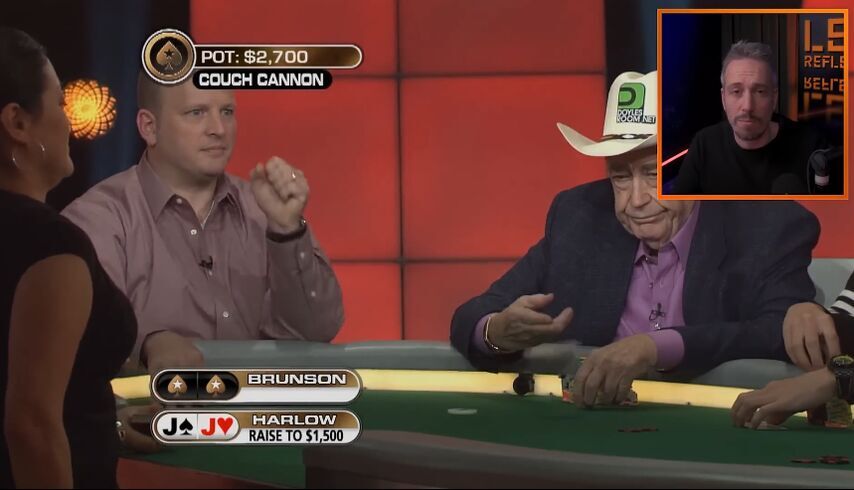
Invited amateur Ross Harlow raises with jacks. I call in the small blind and Justin Bonomo calls in the BB.
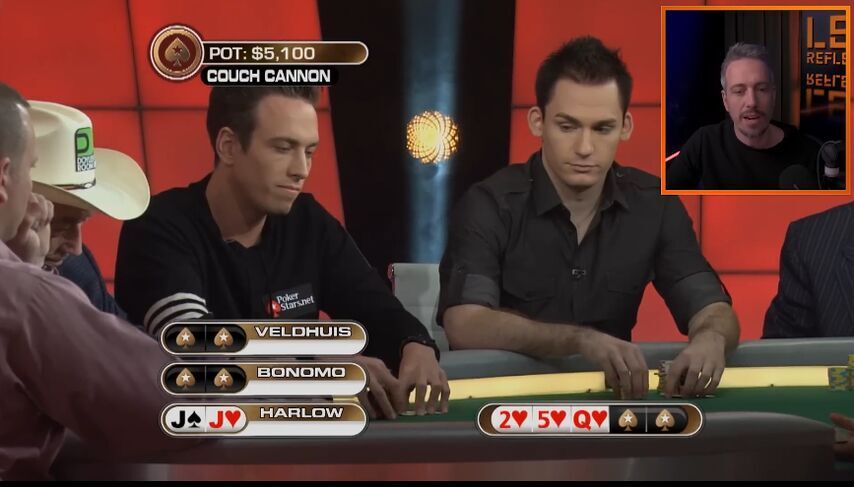
I decide to start betting on the flop with a $4,500 lead. Of course, today it is obvious how many mistakes the players made in those years. I think it's helpful to note that I don't like my lead at all, plus I chose an oversized sizing. One of the main disadvantages of the lead is that the big blind is involved in the hand, in the range of which there should be almost all combinations of flushes, even some . I shouldn't play this texture aggressively from the small blind because it's hard to judge the strength of my hand relative to the big blind. He also has more two-pair combinations than any of us, so it's best to play it safe on this flop.
However, I decided to bet almost the pot! Justin Bonomo called and the action went to the amateur.
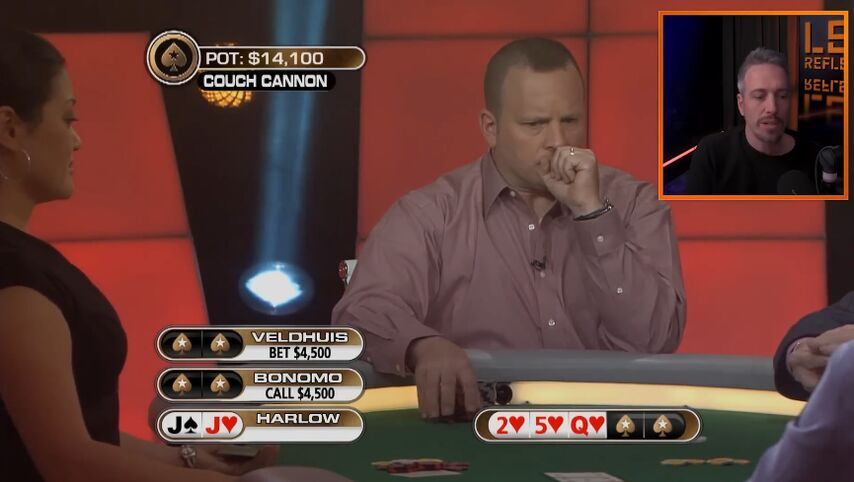
I would fold if I were him – his bluff catcher is so-so, and his opponents' hands are hard to read. It's hard to come up with a realistic scenario where a call will get him to a good ending. However, he calls. I can't blame him: I was hyper-aggressive and he hasn't been in the game for a long time.
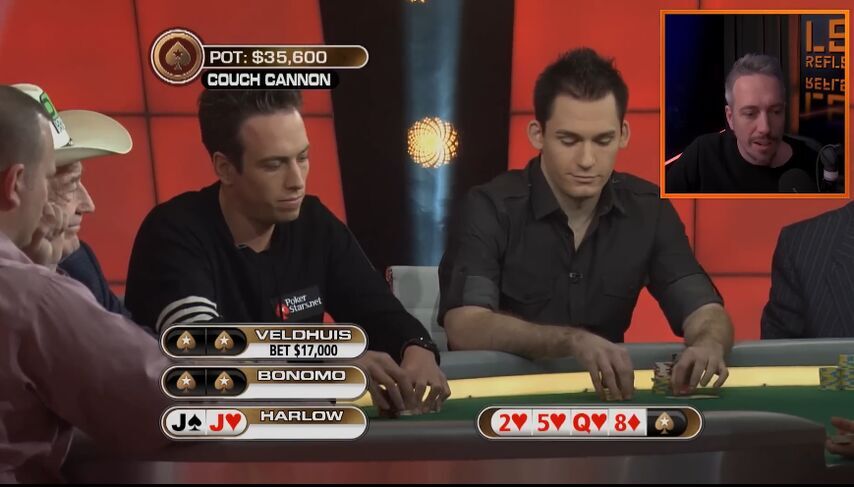
Called by Justin, I should slow down and check on the turn. I did otherwise and bet a full pot.
It seems that my main idea was to play the pots as much as possible against an amateur. My image was terrible, and Harlow often commented on my playing style, calling it too aggressive. So my goal was to get as much value as possible – or to apply maximum pressure, because in poker it's always one or the other, right? I may have a very strong hand or a very weak hand, but in both cases, building the pot against an amateur is probably the right thing to do. Who needs medium pots?
By betting big, I also strain Bonomo. Not only are there a lot of flushes in his range, but there are also quite a lot of trash hands, since he is in the big blind. He has a hard time calling such a big second barrel with one heart hands. Don't let him call! – My bet had advantages…
Bonomo gives up and Harlow has to decide what to do. The situation is unpleasant, but he should have noticed that I bet into two people. The more opponents, the stronger my hand must be!
True, I played the whole series like a maniac and was the loosest at the table by a wide margin.
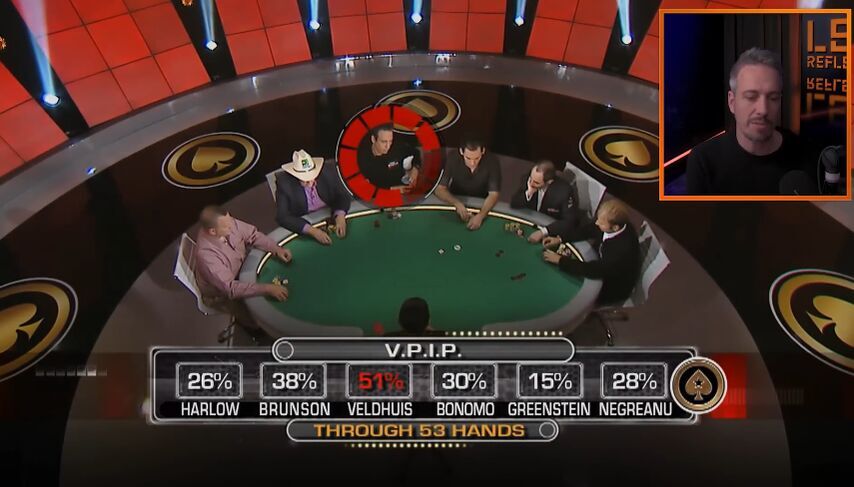
And he has a pair of jacks, with which he may well be ahead, and a chance to make a flush in case he suddenly finds himself behind.
Harlow calls. There is already $52,000 in the pot.
Suddenly I start smiling.
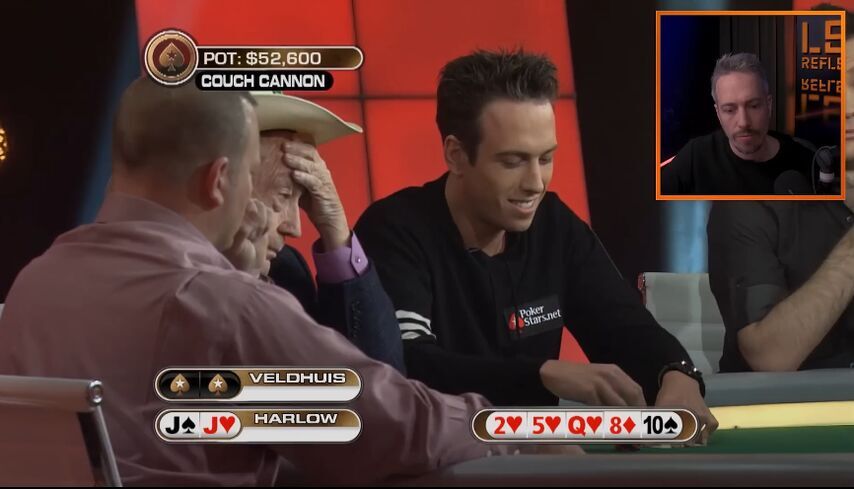
I couldn't help myself – like a child who has conceived a prank. I remember thinking how weird that must look to the people around me, but with my image, a little madness wouldn't hurt.
Then I bet $28,000.
Before I tell you how the hand ended and what my cards were, try to put yourself in Harlow's shoes and decide what to do with a pair of jacks and why.
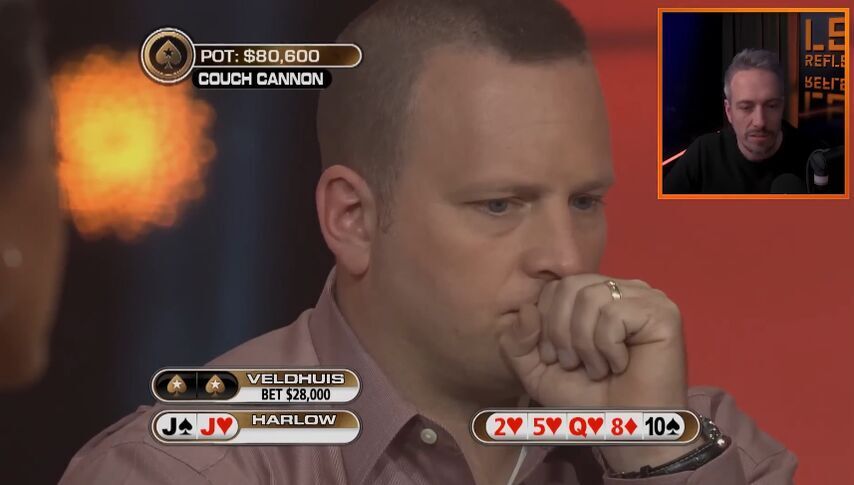
Pot odds are good.
“I really want to call,” Harlow says after a long pause.
– What do you have, ? I'm interested.
“Do I absolutely need a queen to win at the showdown?” my opponent asks.
“Well… no,” I answer with a smile, bowing my head low. All the players at the table start laughing.
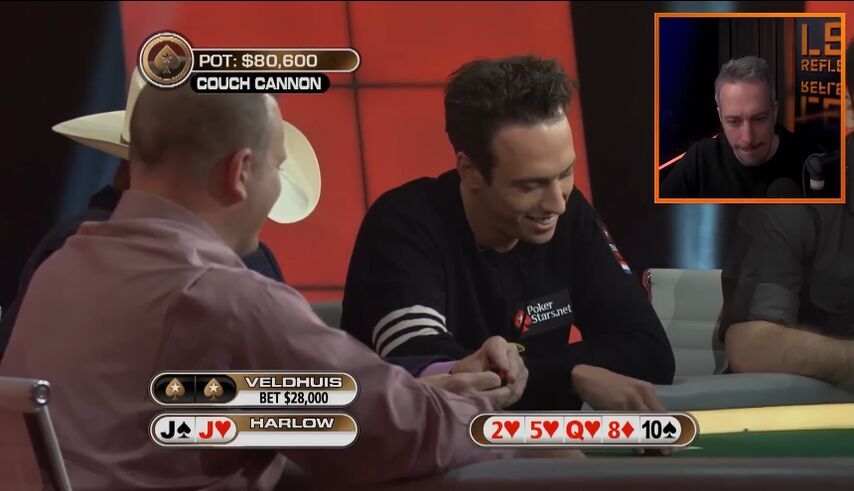
In past situations, I criticized myself more than once for talking at the table, but here it seem to have worked well, and the opponent was very, very close to calling.
– Maybe you should calmly fold and keep your profit? – I suggest to a thoughtful opponent when the pause has already been too long.
But this is definitely not worth saying.
“I don’t think about it at all,” Harlow shakes his head, but soon adds:
– Your reputation precedes you, – and with a sigh, he throws the cards into the muck.
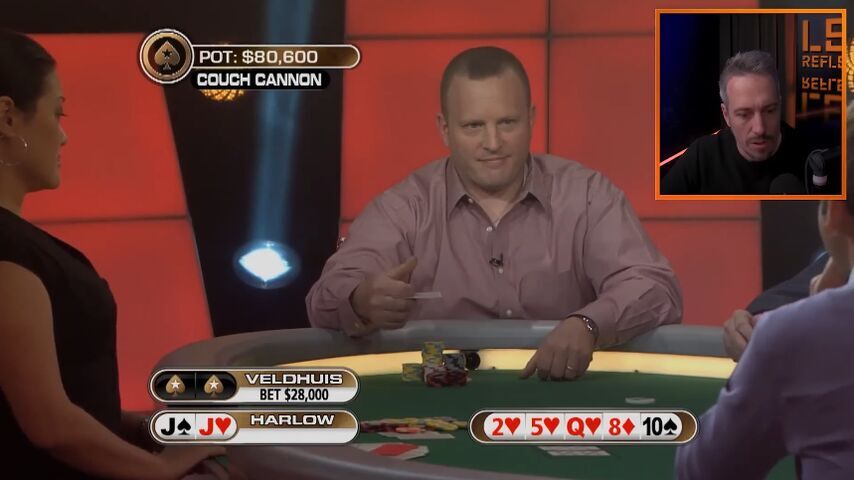
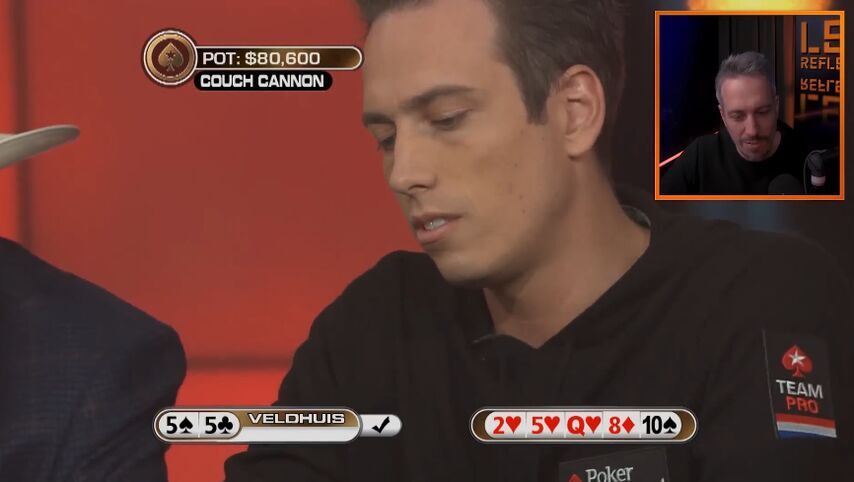
In general, my line is not without reasoning. Of course, when Justin Bonomo is in the big blind, he is extremely dangerous, but the goal is to get maximum value from the amateur. When playing against a tight-passive opponent, you often have to build the pot yourself. In this hand, I did not try to outplay Justin Bonomo, but Ross Harlow. The sizing on the river I chose was frankly extra, but still my opponent was an amateur.
The uniqueness of the rules of the show influenced the course of this hand, but much more strongly – the course of the next one.
Opening K8s is far from the weakest hand in my opening range.
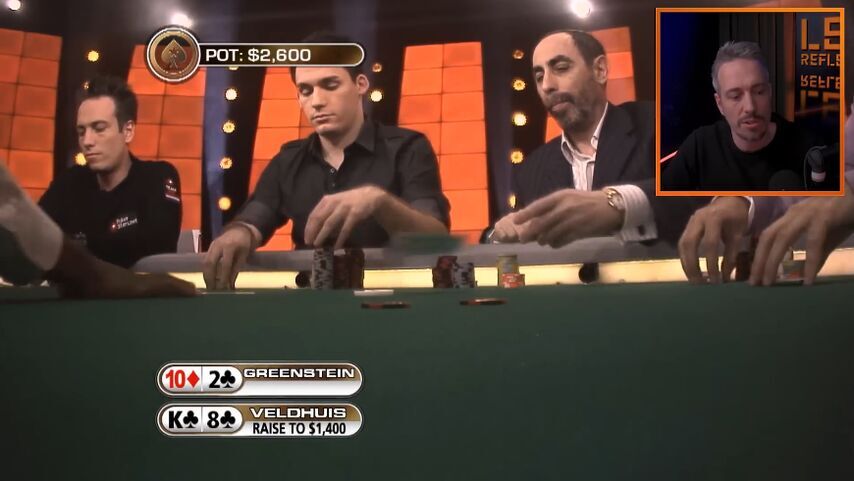
Negreanu calls in the small blind, because BB Harlow, who by that time had already gone into a decent loss, in my opinion, has something around $50k.
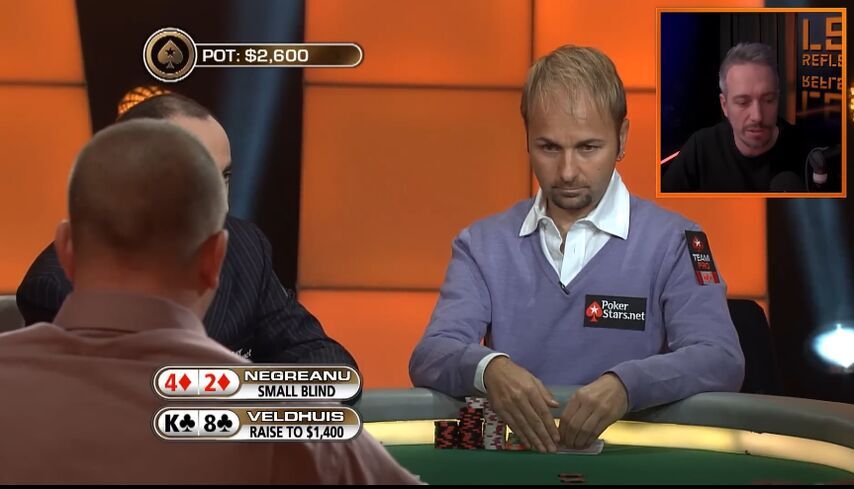
The amateur who needs to come back calls with A8o.
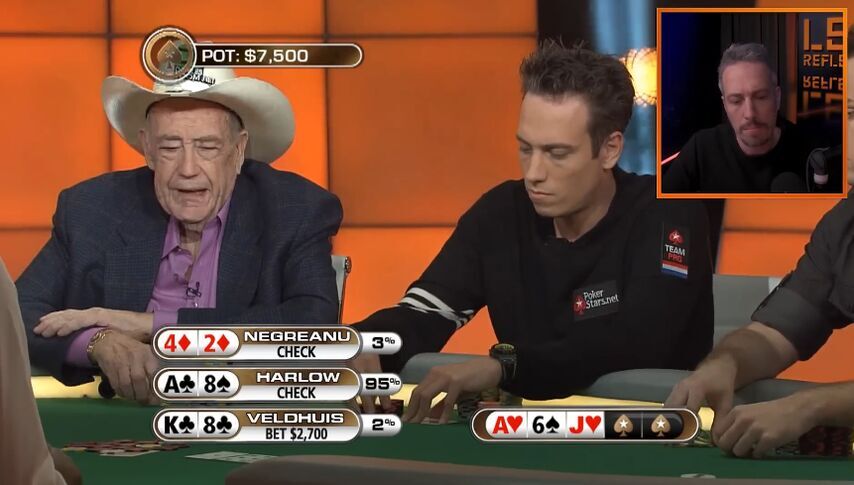
After two checks, I bet my usual c-bet on the flop in the amount of about half the pot. I remember I thought that Daniel would go with an extremely wide range to play the pot with an amateur – in previous editions of the show, he brilliantly played on the weaknesses of the guests. 4-high – yes easily! But with monsters, of course, he would also only call, because his main goal is not to frighten off Ross.
I figured that with strong hands, Harlow would have beaten the pot preflop. Even with or he would probably re-raise big when he was up against the two loosest players at the table. Therefore, on the flop with an ace, I mentally crossed him out of the list of participants in the hands.
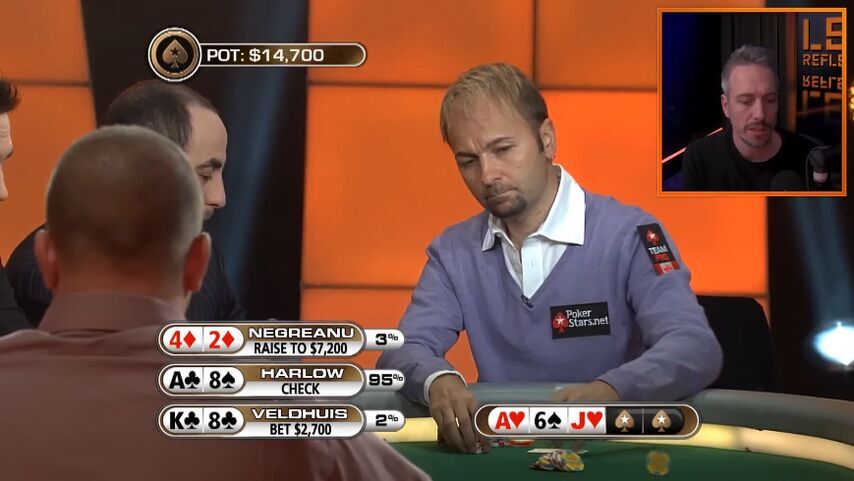
And here it gets interesting: Daniel check-raises to $7,200! Harlow folds a weak top pair almost instantly, which is rather odd in his position. However, an overly conservative game was his main trouble all evening. And I suddenly think…
– What, confused? Daniel chuckles.
I'm really surprised. From everything beforehand, it turned out that with a strong hand, he would definitely slowplay so as not to lose an amateur. If you have a set of sixes, and on the left, there is a person who is obliged to go into the pot in order to profit but does not lose anything if he loses, there is no point in aggression. You can see for yourself – when a bet and a raise came to him, Ross calmly threw away the top pair!
All in all, Negreanu's line alerted me enough to call with K-high.
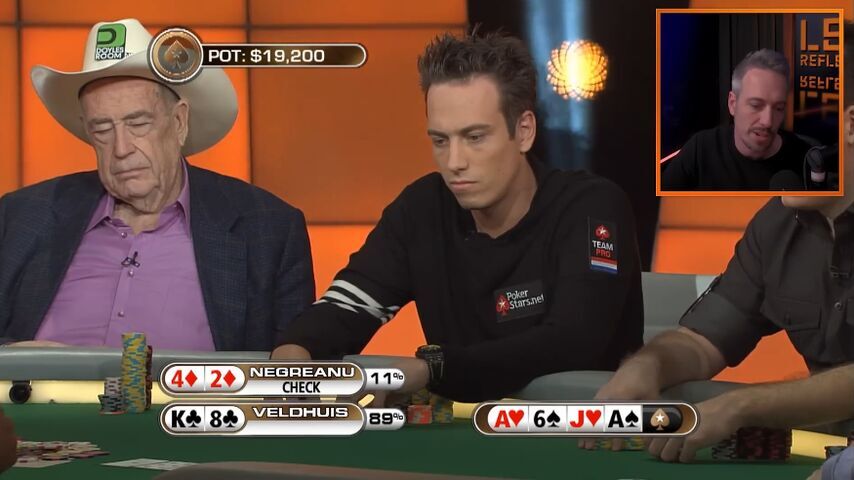
Ace repeats on the turn and Daniel checked. A great card for me – the probability of an ace in the opponent's hand decreases. I check next.
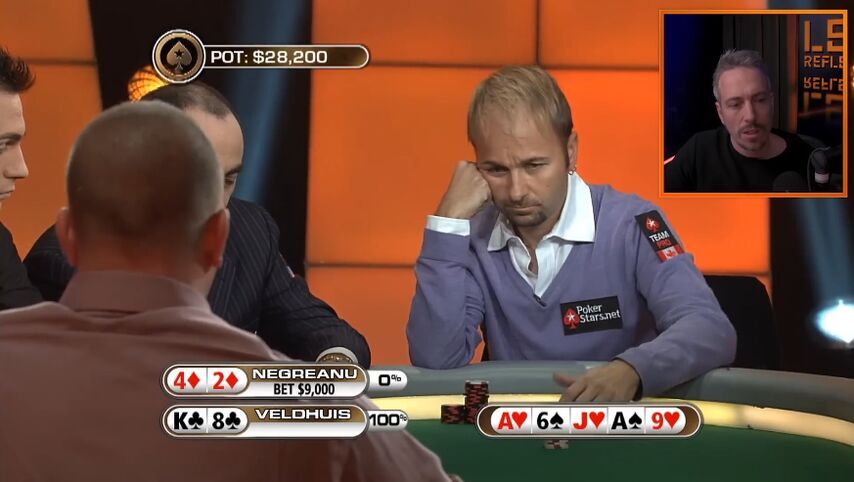
But the river looks dangerous: the flush draw could well be in the check-raise range and Daniel bets about half the pot.
With this bet, he claims to have made a flush. With strong made hands, he would continue on the turn to collect value from me and defend against two flush draws. Checking a monster for a check-raise is hardly wise when another ace comes. However, even with a flush draw, the second barrel on the turn was worthy of attention to knock out my floats and straight draws, so some flushes from Daniel's range can be eliminated. And one more thing: will he make such a modest bet, if he did make a flush?
In general, having considered the situation in its entirety, I decided that the story that the opponent is telling in this hand looks unconvincing. And I have to be right only one time out of four.
CALL!
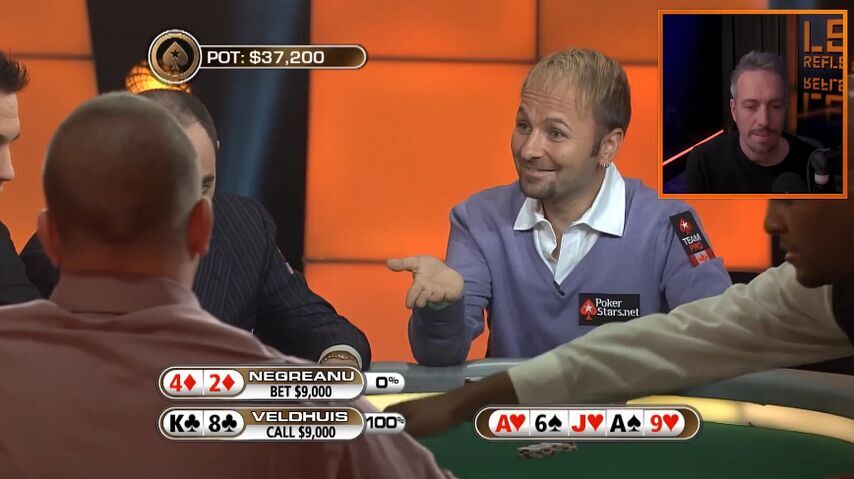
– I'm playing the board! Negreanu says.
Silently I turn over my cards.
– King-high? That's great, good call. What the hell was that? What did you put me on? Daniel clarifies. – On 4-high? Cool. Frankly, on the flop, I was sure that you had nothing.
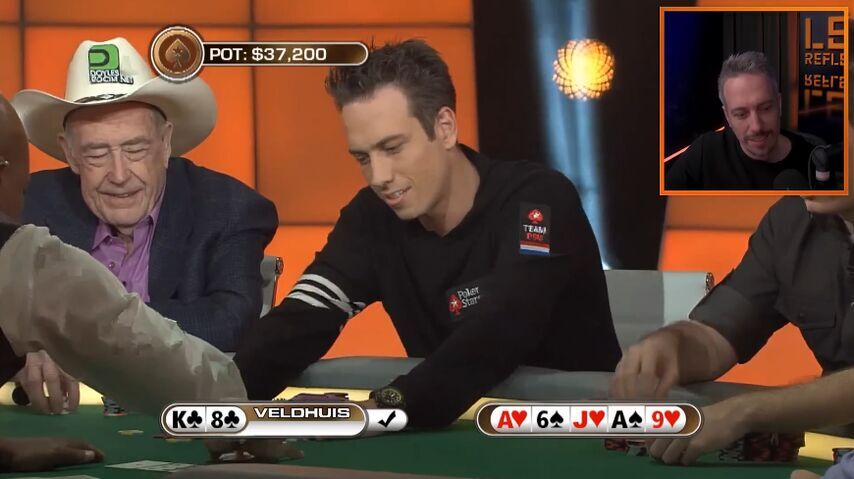
“He put you on a flush draw before the river,” Barry Greenstein grumbles.
I'm still triggered by this remark. Calm down already, old nit! Someone makes a cool call down and all you can do is make a snarky comment?
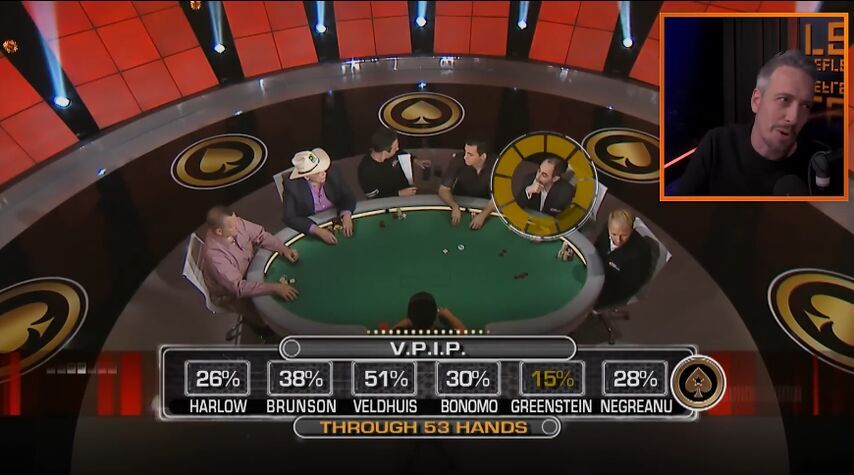
Very much in the spirit of Greenstein.
I'm proud of my call. I think this hand is a great illustration of what poker can turn into under the influence of live table dynamics. On the Internet, the game is more technical, and such insanity is usually not possible.
I think I adapted very well to the rules of the show and successfully acted against the amateurs, but Negreanu's game deserves even higher praise – he felt the dynamics simply incomparably. During these broadcasts, I learned a lot from him, and the knowledge gained was useful, including in this hand.












